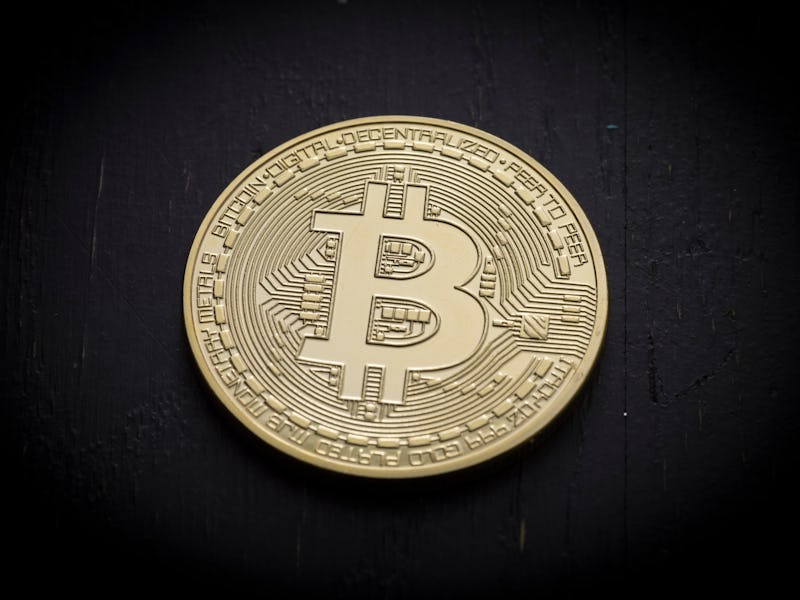Bitcoin Expert Reveals 4 Reasons Why Africa Will Be Home of Next Crypto Boom
Ray Youssef sees a huge shift happening.

Bitcoin is revolutionizing markets in Africa. Ray Youssef, head of cryptocurrency exchange platform Paxful, has found himself at the heart of one of cryptocurrency’s most promising use cases: using technology to help people in developing countries.
“We’re growing pretty fast, especially into Africa,” Youssef, whose company has traded over 40,000 bitcoins since its founding two-and-a-half years ago, tells Inverse. “It’s absolutely massive. Absolutely massive. In the beginning we had no idea what was going on, why do these folks want Bitcoin so badly?”
It’s not just Youssef that’s spotted the opportunities. Adewale Bankole, president of the Bastiat Society and Humaniq ambassador of Nigeria, told CCN in June 2017 that Africa is “most fertile land for cryptocurrencies.” In fact, demand for crypto in Africa has been so high that the Zimbabwe-based Golix exchange saw the price of one bitcoin peak at $34,000 in December 2017, 40 percent higher than its price elsewhere. At some times in Nigeria and Angola, the price has jumped to 100 percent more than global value as eager customers snap up crypto.
Paxful has also noticed the same boom. Nigeria is fighting with the United States for number one in terms of transactions on the exchange, with Ghana third. The service allows users to trade a wide number of goods for cryptocurrency: $10 million per week goes from Nigeria to China in iTunes gift cards alone.
Here’s why Africa is the perfect continent for a cryptocurrency boom.
People need a stable currency
Developing economies with currency instability are an ideal use case for bitcoin. Youssef points to Nigeria, where 1,000 naira has moved from being worth $8 in 2005 to just $3 over the past 12 months. Other countries have experienced worse instability: Zimbabwe’s dollar famously hit a hyperinflation rate of 500 billion percent before the country abandoned the currency in 2009.
“That’s the first use case, they just wanna preserve the value of their wealth,” Youssef says.
People want to send money
Until last summer, banks in Nigeria placed restrictions of $100 online spending via credit card per month. This came after an oil price crash in 2014 that led to government restrictions on international spending.
“Even if you had a million bucks in your account, you could only spend around 100 bucks,” Youssef says.
Bitcoin: the answer to money restrictions?
Youssef gave the example of a Nigerian man that wanted to buy an iPhone X. He bought bitcoin, put it into his Paxful wallet, then sold the bitcoin to a guy on Paxful who put $1,200 into his Alipay. He then bought the iPhone off AliExpress.
Another example he saw is Nigerian people buying used American cars online and selling them for 5,000 percent profit. The central bank’s restrictions hit these businesses, so to get around it people would buy bitcoin and then sell enough for the value of the car at the American auction. When the sell was confirmed the Nigerian car buyer would ask the American bitcoin buyer to transfer the money to the auction’s account.
Bitcoin is good for running an online business
Sellers in some countries can struggle to set up an online store, as many merchant backends require users to operate in North America or Europe. One clothes seller Youssef met, Mahira, found a way to work around these restrictions by using bitcoin.
“I asked her, do you have like a shop?,’ and she said ‘no, I just use my Instagram’,” Youssef says.
Bitcoin allows her to accept payment through any means necessary. Customers can convert their local fiat into bitcoin, arrange the transaction with Mahira, and send it over a secure, global network.
Bitcoin is a solid investment
“A lot of people hold onto bitcoin and use it to invest in forex and stocks and stuff like that,” Youssef says. “Not that many people, but more and more are finding us and seeing they can do that with bitcoin, so that’s growing.”